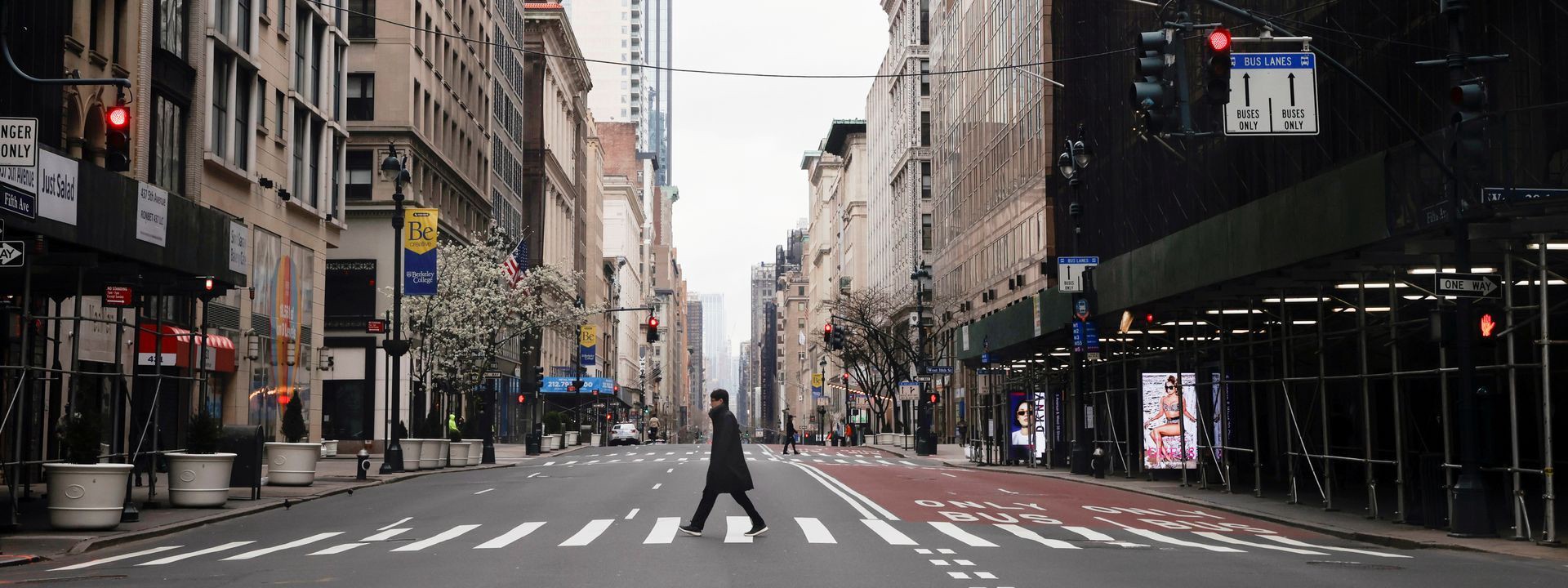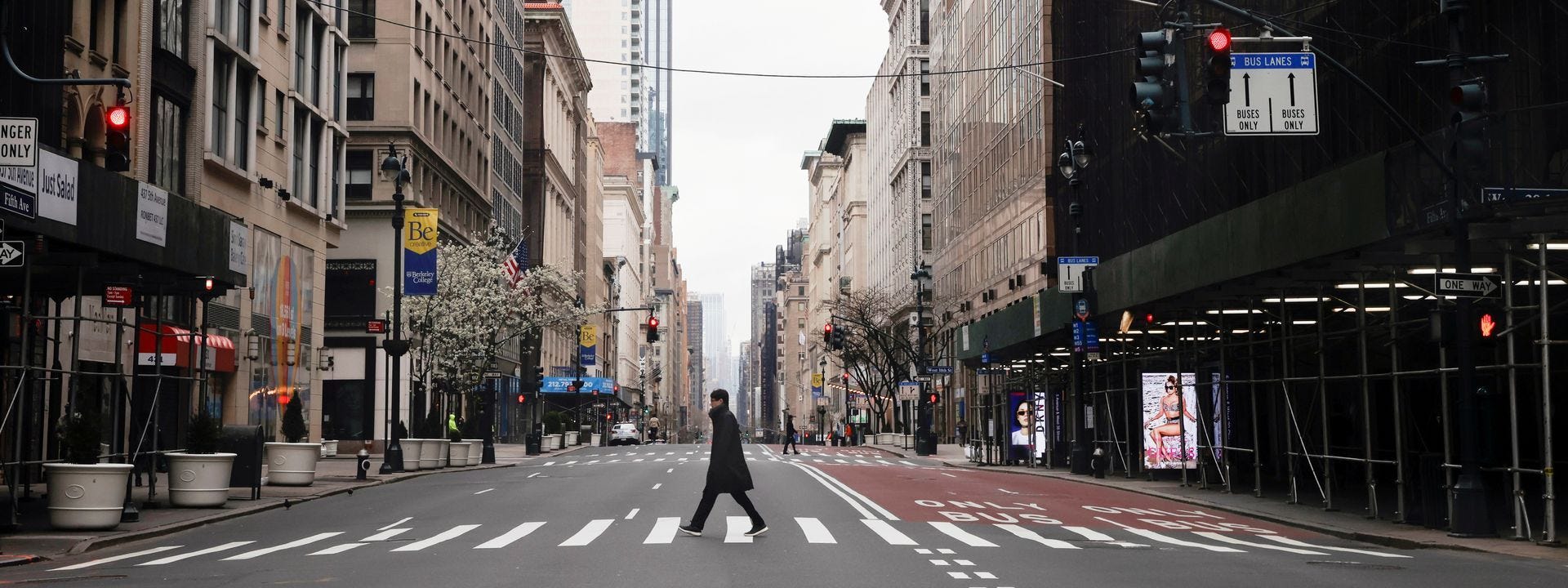Op-ed: Democracy, technology, and the new coronavirus
COVID-19 has the potential to be
Op-ed: Democracy, technology, and the new coronavirus

COVID-19 has the potential to be malware for democracy. Becoming aware of those realities will help us better protect the system.

Over the course of 100 days, the world has plunged into a new reality that could have great implications for governance. As the pandemic continues, elections will happen, dictatorships and democracies will struggle and some will fail, all accelerated by a dynamic we never anticipated. The last great wave of transformation of governance was technology. We’ve moved from the United States building the world’s most powerful weapon to China racing for AI dominance. We built that reality, and now, nature is striking back. How will the dynamic of technology and democracy be transformed by the new coronavirus?
Certainly, it’s too soon for after-action reports, but some realities are coming into focus. The implications of technology on democratic systems in the wake of COVID-19 are far greater than temporarily moving situation rooms to chat rooms. We aren’t simply turning off the world and turning it back on again. COVID-19 has the potential to be malware for democracy. Becoming aware of those realities will help us better protect the system.
1. Digital tools are a must-have, not a nice-to-have, for governments.
Over the years, governments have worked to scale their digital capabilities. Institutions traditionally value slow processes and closed doors, so social media channels were started for the “cool” factor rather than a willingness to embrace engagement with citizens and transparency of actions. Governments comfortable in the digital space are the exception, not the rule. Digital teams remain small in most ministries around the world, often treated as an afterthought rather than integrated into the policy process as the “spokespeople with a keyboard” that they are.
COVID-19 has changed that. Now these teams are working around the clock and the information they are sharing is saving lives. The innovative tools governments have been loathe to use are now quite literally keeping parliaments and cabinets together. The political leaders slow to adopt digital tools now engage in regular dialogue with constituents because it’s their only choice. Now that these tools have become the norm, there’s no going back. Governments will need to consider how they sustain this online dialogue. The expectation of virtual access to our leaders will and should remain long after COVID-19.
2. Self-isolation will inherently amplify what we already believe.
Time locked in our homes is spent reinforcing our existing networks with family, friends and information. The lack of in-person exposure to different people and ideas limits our perspective just as we’re spending an increased amount of time in online filter bubbles. Our existing relationships and beliefs are amplified on platforms that have already succumbed to implicit bias. Racism, gender discrimination, and ethnic attacks existed before coronavirus; with new fears and uncertainty, they will be amplified. The truth we choose to see during our self-isolation is quite literally the one we have created for ourselves, offering misinformation and disinformation the opportunity to take root and grow as we do simple things like looking for miracle drugs to keep us alive. Many of those previously digitally disconnected will get online looking for connection, and in addition to seeing their friends and families, will become new targets for conspiracy theories and malicious content designed to disorient them.
For example, the QAnon community in the United States (the people who think a DC pizza parlor housed Hillary Clinton’s child trafficking ring in their non-existent basement) thought President Trump was sending code that the coronavirus was the cover story for the “great awakening” of mass arrests. As the weeks wane on, the believers haven’t become disillusioned, but rather morphed their theories into believing children are being secretly pulled from tunnels underneath New York’s Central Park.
Policymakers count on moments of national strife to bring communities and countries together. After this is over and we can gather again, we’re likely to be more divided than ever.
3. The technology “have” and “have nots” will show us stark realities about our world.
Never has the world been faced with a truly global imperative to drive people online. If people can connect digitally, it’s now or never. That means that those who don’t — or more importantly, can’t — will in one sense be more visible because of their glaring absence online. It will shine a light on the kids we’re leaving behind without access to educational tools, and on the world’s poor without access to basic life saving information. In the United States, only 35 percent of the members of the Navajo Nation have running water, let alone access to digital classroom tools. Closed societies in North Korea and Kashmir may not even be aware of the global pandemic we’re currently experiencing because they only know what the government wants them to know. Countries in the developing world that suffer from low bandwidth will see decreased access to education and a reduction in commerce.
“Those that do not have access are at risk of being left further behind as digital transformation accelerates, especially those in least developed countries.” warns the UN. As a policy issue, access to technology issues — and the accuracy of the information being transmitted — will now be a life and death question. This means at very least that access to technology will become an issue of even greater concern for global development.
4. The amount of data that is now available is unprecedented.
To stop the spread of COVID-19, schools compelled children into digital classrooms. Governments are holding private meetings online. All of those faces, voices, and conversations are floating out there somewhere. Companies like Zoom claiming they “had some missteps” will be one of the lasting legacies of COVID-19 on the world. In this time, we’ve let data companies into our home, asked them to watch our children, and depended upon them to keep us stocked with food, things, and information. As governments struggle to keep up with supplies, those trapped at home are filling the data clouds with information. So who owns that data? Where does it go? What’s going to be done with it?
5. Who owns the data, and what will be done with it has shifted.
This new economy of data will change the power balance among technology companies, democratic governments and authoritarian regimes. The combined efforts of the likes of Google, Huawei, Ericsson, and Apple are getting millions of people through the day every day. With our data, they will become more responsive, and through AI, more intuitive. At the same time, countries like China and Russia have a stranglehold on the data not only of their own people but are collecting even more data about every human whose information passes through their servers. In the digital era, data privacy for individuals, free speech, and data transparency of governments set free and open societies apart from authoritarian regimes. Now that freedom and the extensive access could put democratic systems at risk.
As policymakers return to questions of 5G and data protection, it will be in the wake of a global demonstration of what people are willing to give up in order to stay connected. The fact is, the efforts of democracies to protect people from the side effects of technology failed, or simply hadn’t been put in place yet. That is going to make it harder for democratic governments to change the practice of technology companies going forward. Faced with risks to safety, security, and privacy, millions of people chose to connect anyway, and technology companies will remind their government counterparts of that every day.
At the same time, the investment in digital control in countries like China and Russia is paying off in terms of data collection. For policymakers, it isn’t a question of if this information will be used for these regimes to make gains, but how.
So what do we do? The very tools keeping us together when our freedom is limited could — in the end — be used to help limit our freedom as authoritarian governments embolden themselves. The small freedoms and choices we still enjoy are being sucked into a cloud to be shared, analyzed, and used to manipulate us. Is it over? Is this it for us?
Unlikely. We still see good in the world. Technology in the free world during coronavirus has connected us, helped us raise millions and spurred innovation, and saved lives. Many democracies like South Korea, Taiwan, South Africa, and New Zealand are knocking coronavirus for a loop with doses of strong leadership, transparency, and tough decisions. Institutions built by democracies — most notably the World Health Organization — are leading the world.
Despite adversity, the focus on What Really Matters has become very real for almost every person on earth. The thing we miss most is freedom. The value we appreciate most is the equality of our humanity. The only choice we have is to move forward. COVID-19 may cause us to reboot our realities, but the fact remains that the only operating system that works for everyone — and not just the few — remains democracy.
Moira Whelan is the founding partner of BlueDot Strategies and a Non-Resident Senior Fellow with the DFR Lab. She formerly served as the Deputy Assistant Secretary of State for Digital Strategy at the U.S. State Department.
Follow along for more in-depth analysis from our #DigitalSherlocks.

